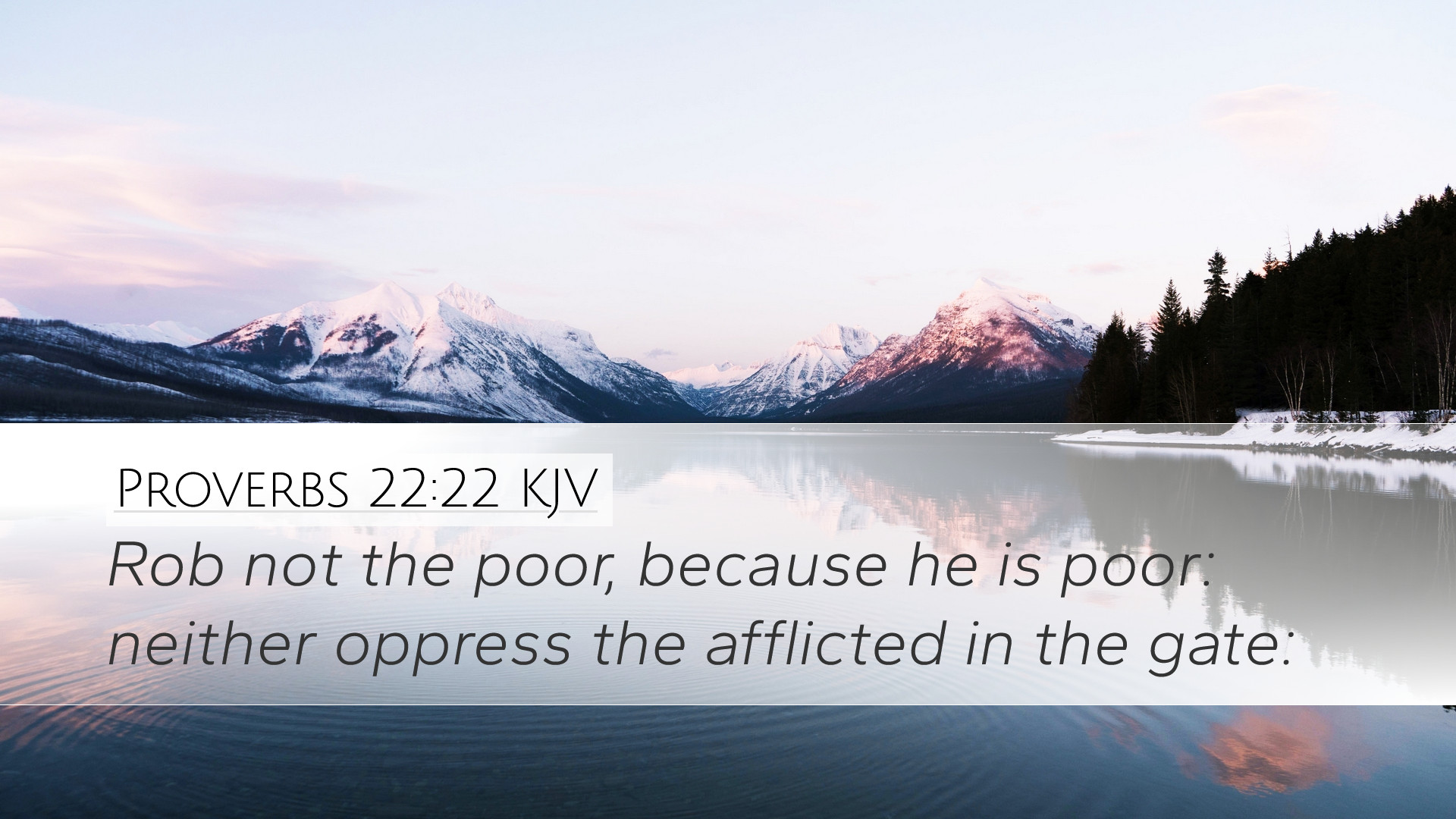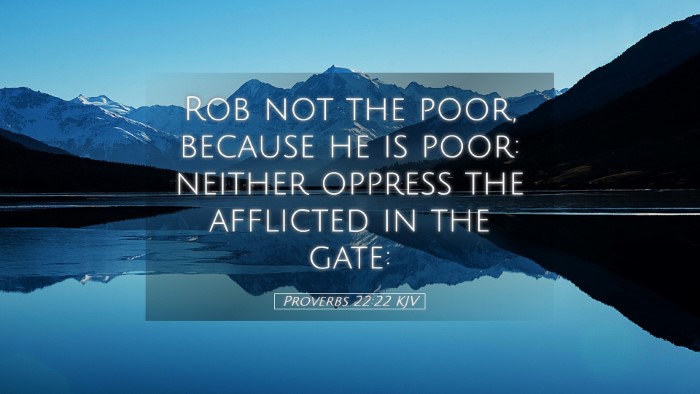Commentary on Proverbs 22:22
Verse (Proverbs 22:22): "Rob not the poor, because he is poor: neither oppress the afflicted in the gate."
Introduction
This verse from Proverbs emphasizes critical ethical teachings regarding justice and compassion. It serves as an admonition against exploiting the vulnerable in society. The overarching themes of justice, mercy, and societal responsibility resonate throughout the ancient text, providing timeless wisdom for contemporary readers, including pastors, students, theologians, and scholars.
Exegesis of the Verse
The structure of Proverbs 22:22 presents two clear warnings:
- Do not rob the poor: The first part of the verse cautions against taking advantage of those who are economically disadvantaged.
- Do not oppress the afflicted: The second part extends this warning to those who suffer injustice, particularly in legal and societal contexts.
Commentary Insights
Matthew Henry’s Commentary
In his analysis, Matthew Henry emphasizes that the poor are often powerless and defenseless, making them easy targets for exploitation. He notes that exploiting the poor, particularly in grave situations, is a sin that invites divine judgment. Henry stresses that God's justice is often manifested in protecting the downtrodden and punishing oppressors.
Albert Barnes’ Notes
Albert Barnes highlights the importance of the social order and the protection of the weak in society. He notes that the "gate" historically signifies a place of judgment or assembly—where legal matters are processed. Thus, to oppress the poor in this context is not only a social issue but a grave violation of divine law and order. Barnes encourages readers to consider the moral implications of their actions in society, particularly regarding the treatment of the needy.
Adam Clarke’s Commentary
Adam Clarke focuses on the moral and ethical ramifications of this verse. He argues that the heart of oppression stems from greed and a lack of compassion. Clarke posits that oppressing others, especially the weak, is against the very essence of Christian teaching and practice. He urges believers to remember the weight of God's commandments regarding justice and mercy—emphasizing the spiritual consequences for those who disregard these principles.
Theological Themes
Proverbs 22:22 opens critical discussion on several theological themes:
- Justice: The demand for justice underscores God’s character and His expectations for humanity to act righteously towards others, particularly the vulnerable.
- Mercy: The verse invites believers to reflect on the importance of mercy in their dealings with others, emphasizing the call to care for those in need.
- Accountability: There is an implicit warning of accountability before God for failing to uphold these moral standards, revealing the seriousness with which God views social justice.
Application for Today
In the context of modern society, Proverbs 22:22 urges individuals, particularly those in leadership and positions of influence, to reflect upon their ethical responsibilities. Here are key applications:
- Advocacy for the Marginalized: Pastors and church leaders are called to advocate for those who lack a voice, championing justice within their communities.
- Ethical Business Practices: In the realm of commerce, businesses must operate with integrity, ensuring they do not exploit the poor or vulnerable for profit.
- Personal Responsibility: Each individual is called to self-reflection, examining their actions and ensuring they align with the sustenance of justice and mercy.
Conclusion
Proverbs 22:22 serves as a poignant reminder of our ethical obligations towards others, particularly the poor and marginalized. From the insights of Matthew Henry, Albert Barnes, and Adam Clarke, we glean a comprehensive understanding of this verse, one that calls us toward justice, mercy, and community responsibility. In a world often rife with inequality and oppression, this exhortation from ancient scripture rings true, offering guidance and direction for righteous living.


